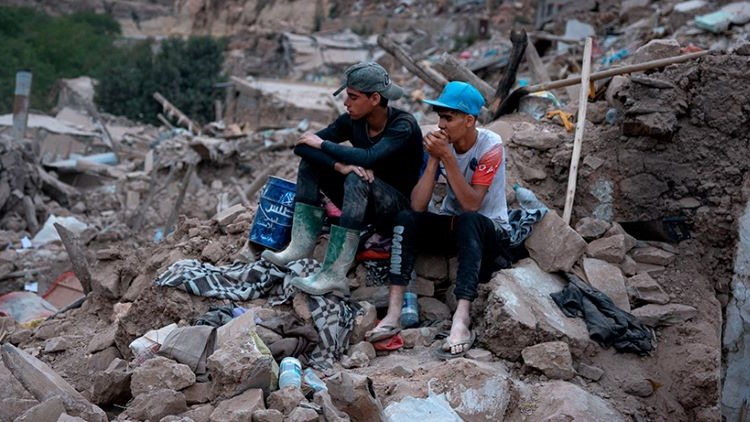The Diplomat
The Spanish Commission for Refugee Aid (CEAR) has called on EU countries, mainly Spain, to commit to promoting measures to ensure access to protection for the population affected by the earthquake in Morocco and the floods in Libya, both transit and host countries for migrants and refugees.
“These natural disasters have not only caused thousands of deaths, but have destroyed cities and communities, triggering forced displacements that in the medium and long term may have a strong impact on migratory flows to Europe,” the organization warned this past Thursday in a press release.
In the case of Morocco, at least 300,000 people have been affected by the earthquake. For this reason, CEAR has shown its concern for the consequences it may have on the living conditions of the Moroccan people and all migrants and refugees residing or in transit in the country, “since unfortunately the most impoverished areas, which traditionally generate emigration to Europe, have been particularly affected”. In this regard, the sub-Saharan communities stranded in the affected areas face greater vulnerability. At least 19,323 people are registered by UNHCR as refugees or asylum seekers, but thousands more are in the country without official recognition.
In the case of Libya, and after the passage of Cyclone Daniel, the situation in which populations that were already in situations of extreme vulnerability, due to conflicts or human rights violations such as those suffered by migrants and refugees in the North African country, where at least 50,000 people live trapped due to the control and externalization of European borders, is of particular concern.
On the other hand, according to CEAR, in 2022 there were 71.1 million internal displacements in 137 countries, of which 32.6 million were as a result of natural disasters, a figure that represents an increase of 41% over the previous year. “For the first time since records have been kept, more people were forced to leave their homes by environmental disasters than by violence and conflict.”
These phenomena particularly affect migrants and refugees, as many of them live in particularly difficult, resource-scarce areas, exposing them to new causes of displacement and decreasing the chances of returning home. Most of these displacements occur within the country’s borders, making access to protection difficult.
People who are forced to cross an international border also do not have clear access to this right, as there are no binding legal instruments applicable for these cases. “In addition, the protection of all these people is usually left out of the discussions and measures taken in relation to the consequences of climate change, very much focused on mitigation and adaptation,” the organization lamented.
“European countries have reacted by sending rescue teams to both countries. What we ask is that this solidarity also be shown after the emergency, when the media spotlight is no longer on, and thousands of people need more than ever to be guaranteed access to protection and a dignified future,” said Estrella Galán, CEAR’s director general.






